Table of Contents
ToggleOnline education demands more than just logging in and submitting work; it demands a fundamental shift in how you approach learning itself. With over six million students now enrolled in at least one online course, the students who excel are not just those with the most time, but those who master the art of meta-learning (the skill of learning how to learn effectively in a self-directed environment). This guide will show you exactly how to get good grades in online classes by moving beyond BASIC study tips and diving deep into the cognitive and strategic frameworks that separate A-students from the rest.
What Are the Best Ways to Improve My Grades in Online Courses?
If you are wondering how to pass online classes with top marks, then remember it starts with accountability. First, you must approach your virtual education with the same level of commitment and seriousness as an on-campus program to improve grades in online courses.
Next, before any practical tips, you need to forge the right mindset. The “treat it like a real class” advice is common, but the underlying psychology is what matters.
Your environment and routines are cues that shape your behavior far more than willpower alone. The most impactful habit is to treat your online courses as a serious commitment.
The challenge is Activation Energy- the mental friction required to start a task. The key is to reduce this friction with powerful rituals.
The Power Combo: Building Elite Mindset with a Fixed Ritual
Don’t just wake up, freshen up, get dressed, and log in to your portal. Create a 5-minute sequence that signals the start of your “academic workday.”
This could be: brewing coffee, sitting at your dedicated desk, opening your digital planner, and reviewing your tasks for the day.
This is a form of habit stacking, where you link new habits to existing ones, making them nearly automatic.
- First of all, this ritual tells your brain, “The time for scrolling is over; the time for learning has begun.”
- Secondly, this helps eliminate the “out of sight, out of mind” trap and reinforces the importance of your coursework.
After all, it all begins with this non-negotiable, daily commitment.
Secondly, Use Technology- The Essential Toolkit for Online Students
Next, if you are looking for practical tips for getting good grades online, start leveraging the right technology.
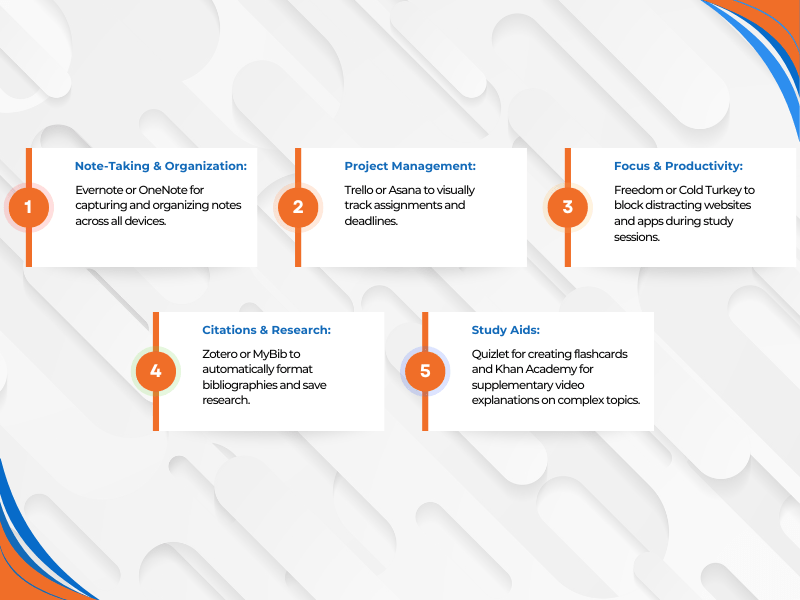
Shaking hands with technology is one of the best study habits for online students, as it can streamline your entire workflow.
How to Stay Focused and Get Good Grades in Online Classes?
Your ability to achieve deep focus is the superpower of the 21st-century student. It is the only way to engage in real study and get better results in virtual learning.
How to Create a Distraction-Free Study Zone?
Your home environment is a minefield of potential distractions. You need to create a “distraction-free zone,” which is a three-layer concept:
1. The Physical Sanctuary: Designate a specific desk or corner in your home exclusively for studying. This isn’t a luxury; it’s a cognitive necessity. This psychological separation signals to your brain that it’s time to work.
2. The Digital Sanctuary: This is where most students fail. Go beyond simply closing tabs. Turn off all non-essential notifications system-wide on your phone and computer. Use noise-canceling headphones to mute household chaos and install website-blocking apps like Freedom or Cold Turkey during your study blocks. Curate your digital environment with the same intentionality you’d use to curate a physical library.
3. The Social Sanctuary: Communicate your study blocks to family or roommates. Let them know when your “focus sanctuary” is not to be breached.
Proactively engineering your space and habits for deep focus is non-negotiable if you want to know how to get good grades in online classes.
How to Manage Time to Get Better Grades Online?

Next, effective time management is the engine of online academic success. A simple to-do list isn’t enough; you need a dynamic system.
Here are two key laws for maximizing productivity in online classes through time management:
Defeat Parkinson’s Law with Time-Blocking
Parkinson’s Law states that “work expands so as to fill the time available for its completion.” An open-ended task like “work on my essay” can consume an entire day.
Time-blocking is the direct antidote. Instead of a to-do list, use a calendar to give every single hour a job. Schedule “9 AM – 10 AM: Research for History Essay” and “10 AM – 10:30 AM: Respond to Discussion Forum.” This specificity eliminates procrastination and forces efficiency.
Tip: Use a digital calendar (Google Calendar, Outlook Calendar) to schedule every part of your day: lectures, reading, assignments, and breaks. This creates a clear roadmap for what you need to do and when.
The Pomodoro Technique
The Pomodoro Technique (25 minutes on, 5 minutes off) isn’t just about focus; it’s about brain science. Intense focus creates cognitive strain. The scheduled 5-minute breaks are essential for memory consolidation, allowing your brain to file away what you just learned.
What Specific Strategies Help Me Succeed in Online Classes?
Getting good grades means making a good impression in an online class. To truly excel, you need to employ active learning techniques. Here are some advanced strategies to excel in online college courses.
Get Organized Using the Cornell Note-Taking System
Divide your digital notes into three sections: a large column for raw notes, a smaller column for cues and questions, and a summary section at the bottom. This method forces you to organize and process information as you learn.
Know Your Gap Using the Feynman Technique
After learning a concept, try to explain it in simple terms, as if you were teaching it to a child. This is the fastest way to discover what you don’t truly understand.
Start Studying Using Spaced Repetition and Active Recall Rules
Passive reading leads to poor retention. Only reading your notes out loud is not studying. True learning comes from actively recalling information from your brain. Here are the two strategies for How to Study Effectively for Online Classes:
Active Recall- What is it?
Your brain is a muscle; it gets stronger from being forced to retrieve information. This is Active Recall. Re-reading is passive and creates an illusion of competence.
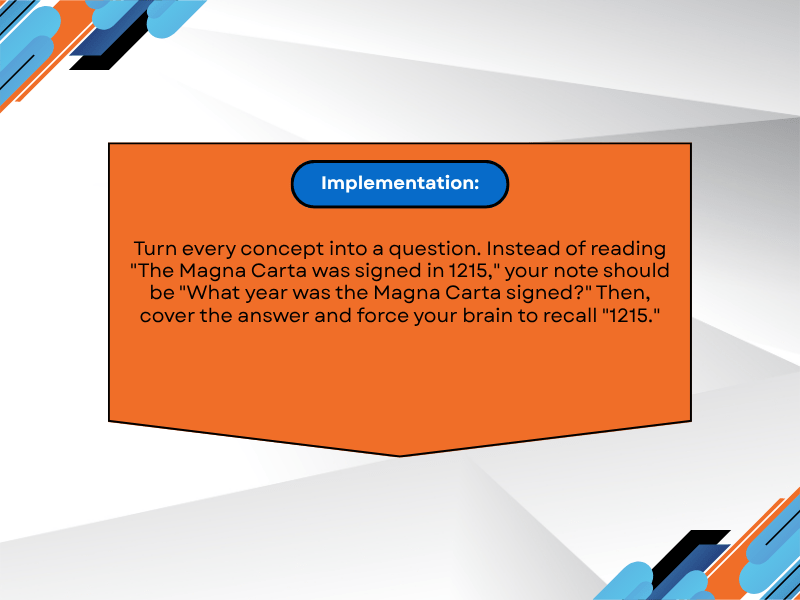
Spaced Repetition- What is it?
It is the principle that we learn better when we review information at increasing intervals over time.
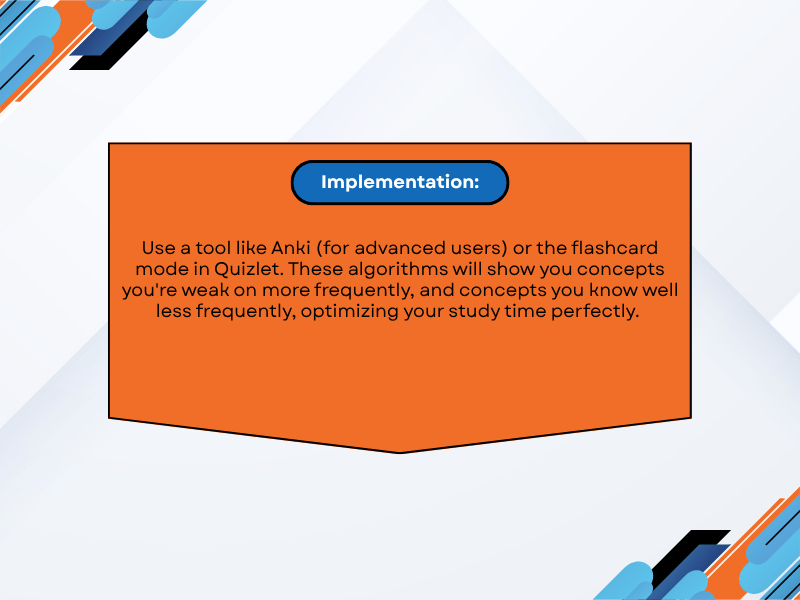
This blend of Active Recall and Spaced Repetition is the most efficient, evidence-based way to succeed in online classes.
Extra Tips for Unique Online Learning Challenges
Different courses have different obstacles. Let’s take Math Courses, for example. The key goal is “how to get good grades in online math classes”; the straight answer is practice and visualization.
1. Use a digital whiteboard app to work through problems step-by-step
2. Join virtual study groups to tackle difficult proofs together.
Also, students get intimidated when it comes to proctored exams. The main challenge is cognitive load. Reduce it by preparing with these tips for passing online proctored exams:
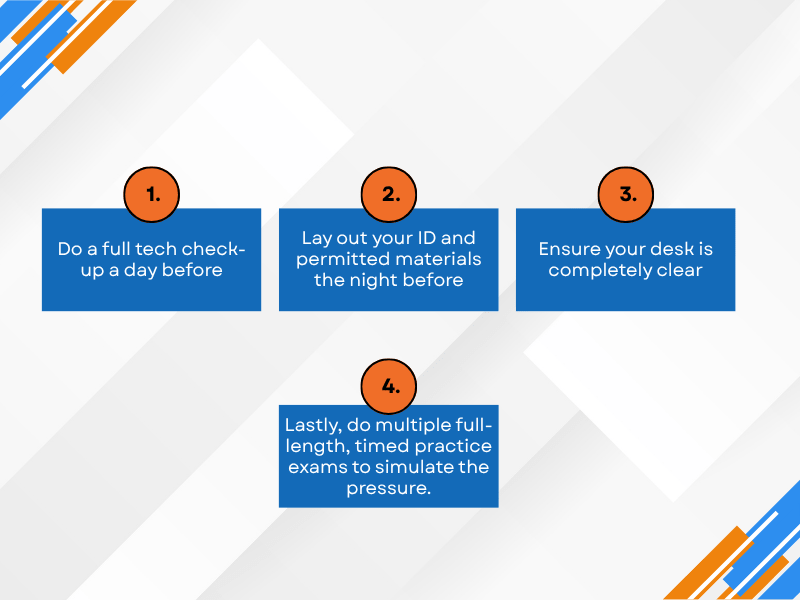
For some, the workload of demanding courses can become overwhelming. In these niche situations, students might seek external support, and it is not unheard of for a student to decide to “do my online class” through a service to manage their coursework.
Why Are My Online Class Grades Low and How to Fix It?
If your grades are slipping, it’s a critical moment to act decisively, not panic. Discovering you’re failing is stressful, but it’s often fixable. Here is a clear action plan for what to do if you are failing an online class.
Assess the Situation
Calmly review your grades and the course syllabus to understand the weighting of remaining assignments. Determine if it is mathematically possible to pass.
Perform a “Brutally Honest Self-Assessment”
Ask yourself: What is the real root cause of my poor grade?
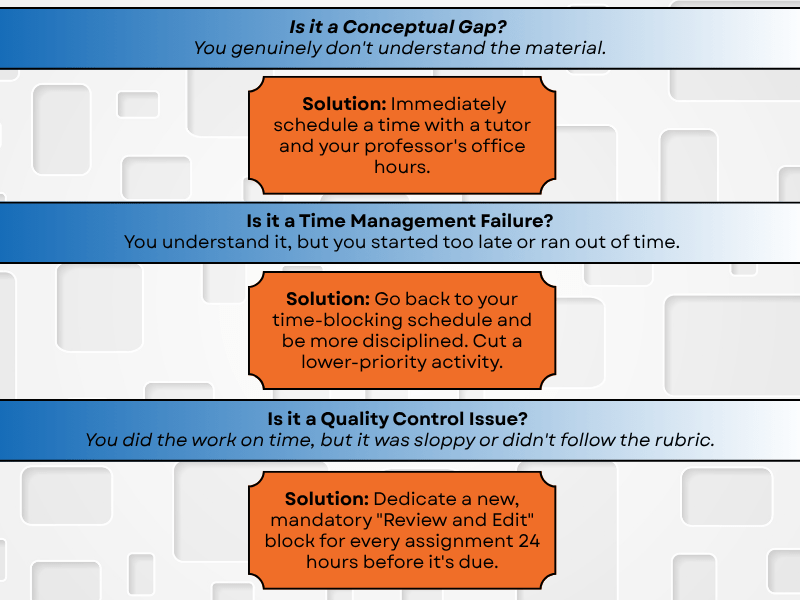
Communicate with Your Professor
This is the most crucial step. Instructors who show initiative are often willing to help students. Send a professional and respectful email to open a dialogue.
Use This Email Template:
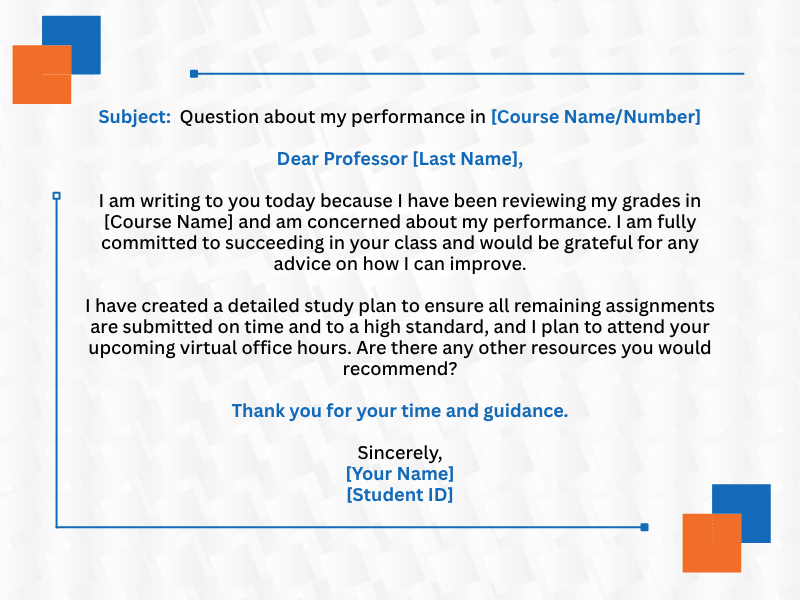
Create a Recovery Plan
Acting strategically is the only way to reduce stress and boost online grades. Prioritize high-value assignments and dedicate focused, non-negotiable time blocks to catch up.
If you think you need external help, our expert online class assistants are just one call away! They can provide strategic support to recover your failing grades.
Conclusion
Mastering how to get good grades in online classes is a powerful skill built on discipline, strategic planning, and active engagement. Your success is defined not by where you learn, but how you learn. These proven ways to ace your online courses are your roadmap. Put them into practice, and you will not only improve your grades but also build habits that will serve you throughout your personal and professional life.
Frequently Asked Questions
How can I get better grades in online classes if I struggle with motivation?
This is a common challenge. Motivation is a product of progress, not a prerequisite. To stay motivated and improve online class grades, focus on achieving one small, concrete win each day. Instead of “study for the exam,” make your goal “Define five key terms from Chapter 2 and test myself.” That small victory creates momentum, which in turn builds motivation.
What are the key steps to get A's in online classes?
The definitive steps to get A’s in online classes are:
- Master Active Recall and Spaced Repetition for studying, not passive re-reading.
- For every assignment, explicitly check your work against the grading rubric and ask, “How can I take this from a 90% to a 100%?” before submitting.
- Treat discussion forums as an opportunity to showcase intellectual curiosity by synthesizing ideas, not just summarizing them.
How do you achieve high grades in online learning without getting overwhelmed?
The key to avoiding burnout is proactive organization. Use a digital planner to track every deadline from day one. Set realistic weekly goals to stay ahead of your work, and most importantly, ask for help from professors or academic advisors the moment you feel lost. This prevents small problems from escalating and is the best way to achieve high grades in online learning.
How to raise an F?
To improve a failing grade (F), focus on consistent effort, better study habits, and asking for help when needed. Start by understanding the situation. Identify the reasons behind the low grade. It could be missing assignments, difficulty understanding the material, or poor time management. Review the course syllabus carefully. Look at how the grade is calculated and find areas where you can improve. Talk to your teacher as soon as possible. Set up a meeting to discuss your progress. Ask about your weak areas and whether extra credit is available.

